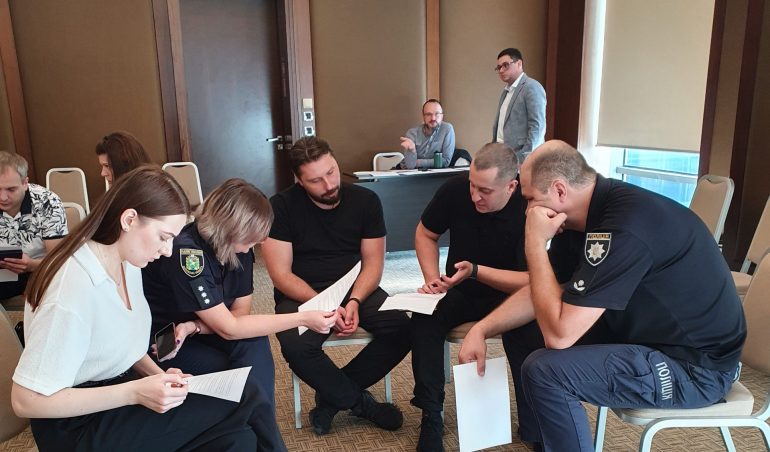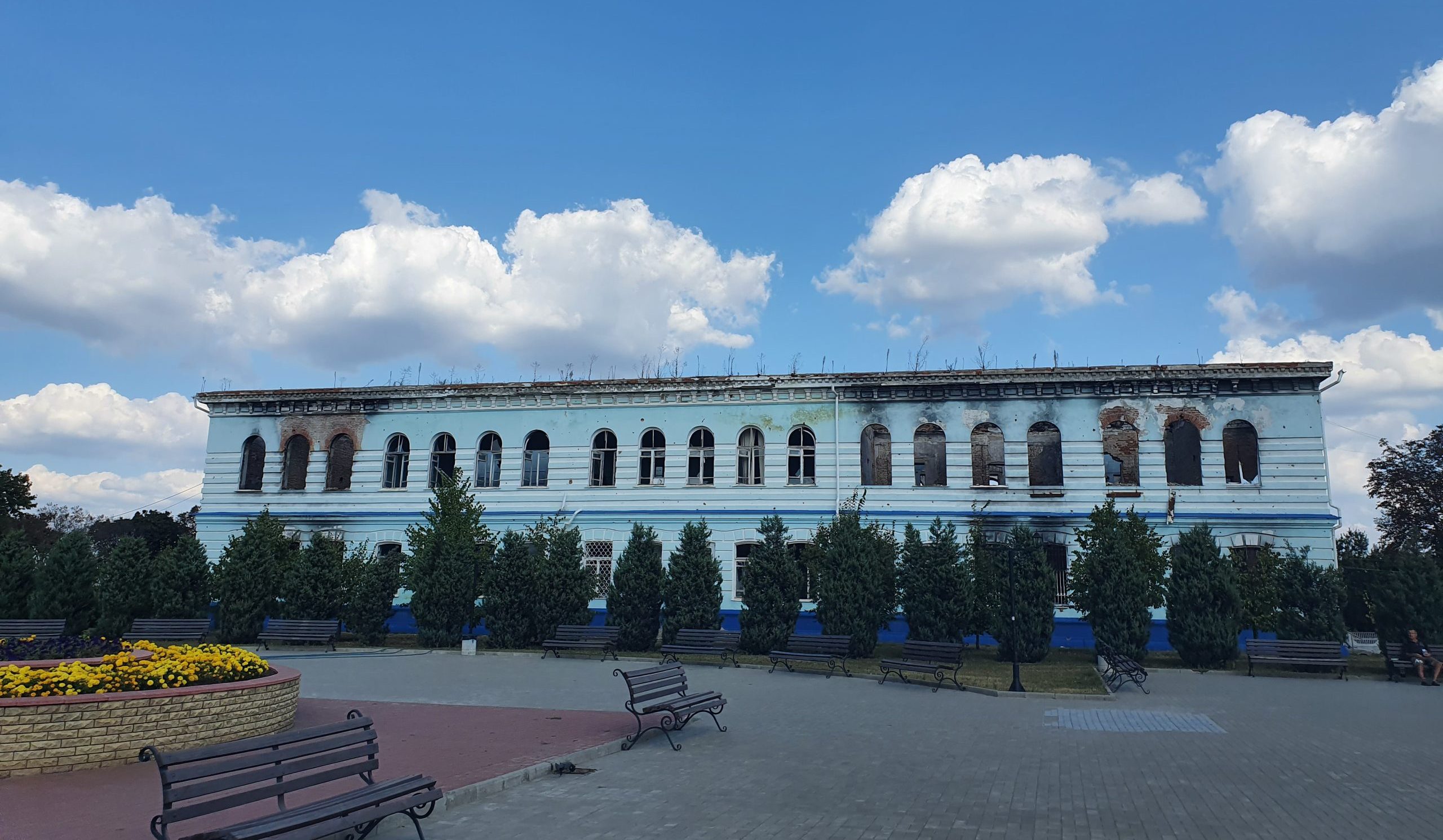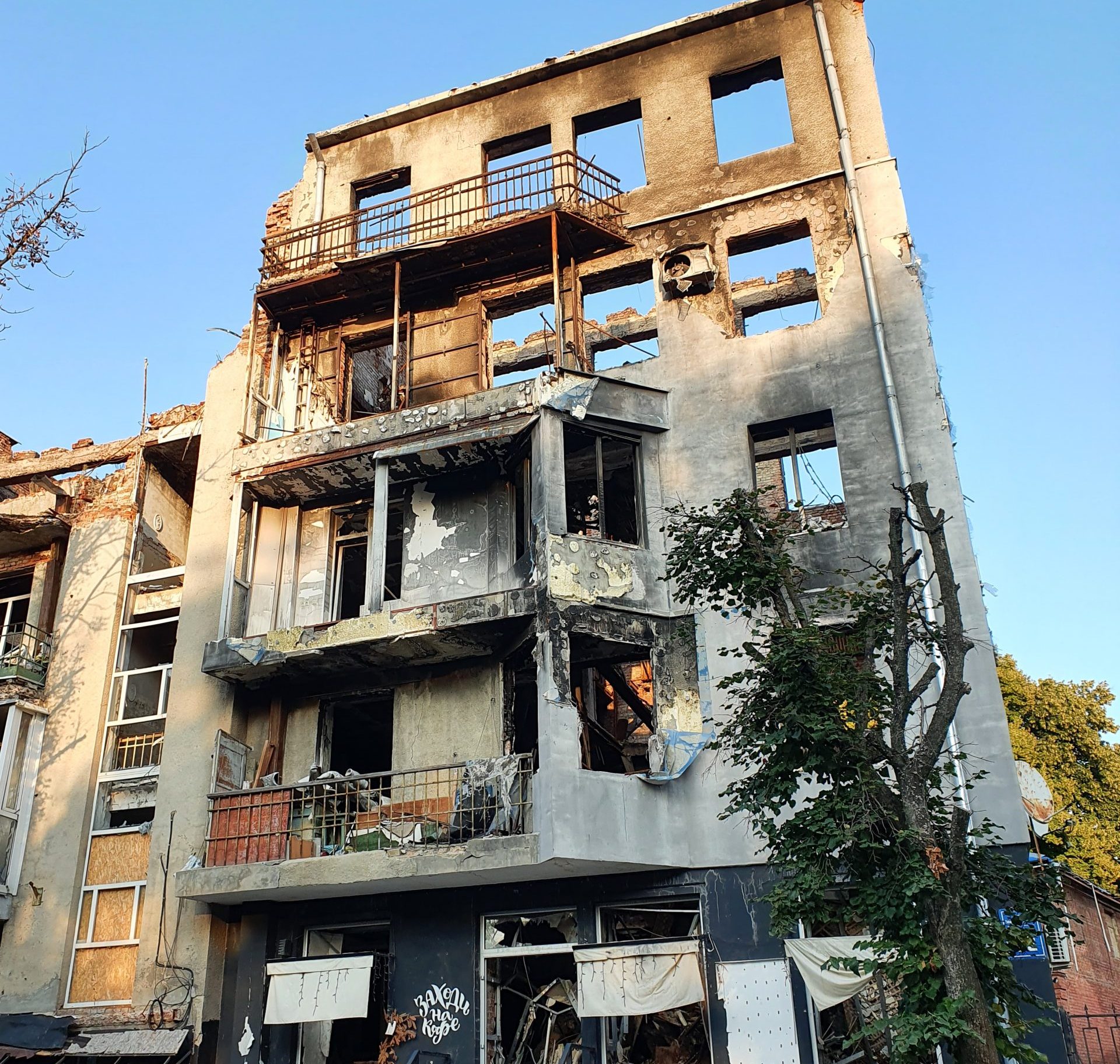Working towards the prosecution of International Crimes committed in Ukraine
September 14, 2023
“Prosecution of International Crimes is to be seen as a marathon, not a sprint. It takes time, years, even decades”, says EU Advisory Mission (EUAM) Ukraine’s Senior Adviser on Prosecution of International Crimes, Mark Roorda, addressing an attentive and inquisitive audience.
It is the first day of EUAM Ukraine’s workshop on International Crimes for prosecutors, law enforcement officers and academics from the Kharkiv and Sumi regions of Ukraine, taking place from 5 to 9 September in the city of Kharkiv.
Several of the participants come from Izyum, a city previously occupied by Russian forces during its unjustified war of aggression against Ukraine.

The workshop comprises of lectures on International Humanitarian Law (IHL), Open Sources Intelligence (OSINT), and investigation of crimes committed in detention centres.
It is very interactive.
The many questions of the participants reflect the reality on the ground: rule of law professionals in Ukraine are performing demanding and unprecedented duties, such as the investigation of war crimes, while being directly affected by the ongoing war.
The participants ask for example about the criteria to be applied with regards to the status of alleged war criminals, or the rights of prisoners of war under IHL.
One of the participants enquires about the status of combatants’ in defending cities in Ukraine.
Nelya, 27 years old, and Alina, 34, are prosecutors from Izyum. They learn that aggression is a violation of international law and high crime, but also that according to international law and jurisprudence this it is interpreted narrowly, as a leadership crime. In other words, only the ones on the top of the chain of command could be held criminally responsible.
During a coffee break they explain how hard it is for them to realise that their work won’t necessarily lead to bringing each and every culprit to justice.
Nelya flicks through the pictures in her phone. They show images of the destruction of her father’s construction company: a burned truck, a completely destroyed building.
“Everyone in Izyum has been affected by the loss of a loved one, a friend, or a neighbour” says Alina.
Emotion can be felt in her voice when she adds: “We want to believe that justice will prevail. Or at least we have hope for it”. They nod and keep silent for a moment.
The workshop includes many practical case-studies exercises, simulating possible real-life scenarios.
Matti Raatikainen, EUAM Ukraine’s Head of Unit of International Crimes Investigations and his colleague, a Senior Adviser on Prosecution of International Crimes, present the audience with a case study simulating the investigation of alleged war crimes.
The scenario involves a fictitious city in Ukraine with heavy industry hit by a Russian missile attack and temporarily occupied during the war. How to deal with accounts of atrocities committed by the Russian forces after liberation of this town is part of the exercise, from fact-finding to investigation and prosecution. These include acts of sexual violence and murders in provisional detention centre for civilians, prisoners of war, summary executions and mass graves.
The real cases Ukrainian police officers and prosecutors are investigating today are not far from the EUAM Ukraine’s seminar exercise scenario.

The attendees of EUAM Ukraine’s workshop feel the responsibility of having a key role in bringing war criminals to justice.
Aware that this might take years, if not decades, they study best practices and prepare.
EUAM Ukraine strives to support them in their quest for justice.


